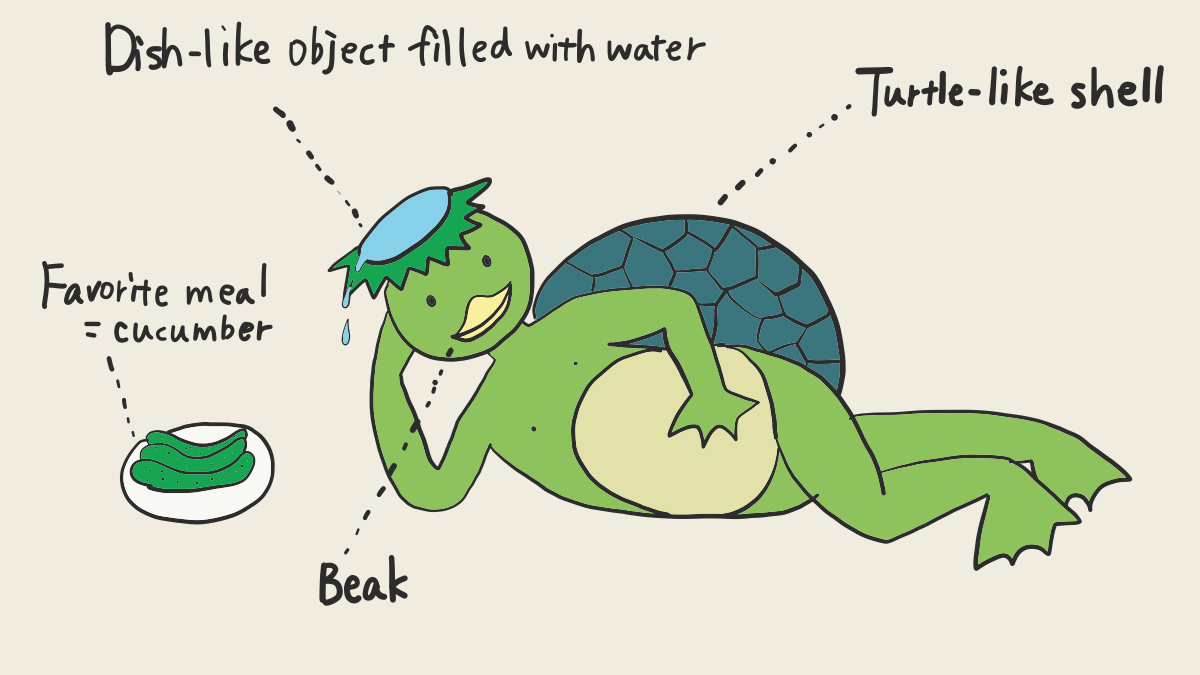Kappa is one of the traditional monsters which often appear in Japanese folklore. What it is like and how it acts depends on era and locations in Japan, but the main of its features is almost the same as you can find in the following illustration.

Kappa is amphibian. It is said that Kappa can stay in water for 12 hours without pulmonary breathing.
In folklore or fairy tale, Kappa is described to have a good spirit. For example, “Kappa fool around, but they never do something too bad,” “Kappa helped civil engineering works,” or “Kappa gave fish to the people who helped Kappa.” However, some folklores spotlight Kappa’s cruel side, which is Kappa pull people to the river and make them die, or they pull “shirikodama” of the people and make them die.
In any features folklore spotlight, Kappa is one of the traditional characters to which Japanese people feel close. There are lots of familiar Japanese phrases, including a word of Kappa.
- Kappa no kawanagare (河童の川流れ)
In English, it means even Kappa drown in water. This is a famous proverb in Japanese. It means, even a master sometimes fails.
- Kappa maki (かっぱ巻き)
Sushi roll including cucumber is called Kappa maki in Japanese, because Kappa likes cucumber.
- He no kappa (屁の河童)
That means Kappa’s pooh in English. This is also a famous proverb in Japanese. It means “a trivial and insignificant thing” in Japanese.
Not only in Japanese phrases but also you can find Kappa in cartoons, books, TV, commercials and even in Japanese movies. That means the idea of Kappa is familiar with Japanese people. Kappa is close to the people, even if no one ever saw real Kappa before.
By the way, where did the concept of Kappa come? According to one theory, the basic concept of Kappa came from a drowned body of humans. Usually, the color of a drowned body is green, and its hair wears out. So what it’s like is quite similar to the concept of Kappa having green surface of the body and with little hair. In addition, the drowned body is sometimes inflated by gas, which may have been mistaken by the shell of the kappa. There is also an estimation that since rivers, lakes, ponds where the dead bodies sometimes float have a high risk of drowning accidents, especially for children. So a yokai called kappa has been passed down to warn children that "There will be kappa there, so stay away from them."